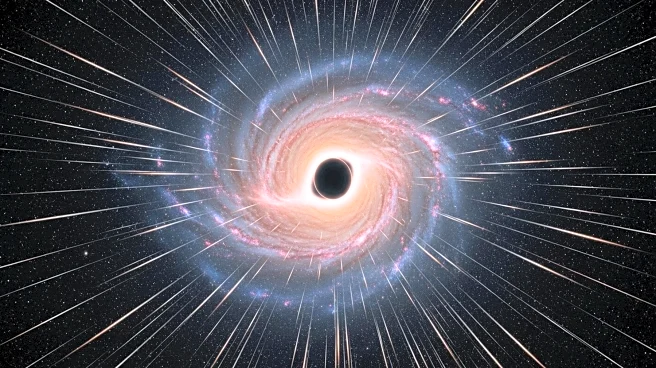What is the story about?
What's Happening?
Researchers from the Norwegian University of Science and Technology (NTNU) have proposed a new explanation for the origin of ultra-high-energy cosmic rays, a mystery that has puzzled scientists since 1962. Led by Associate Professor Foteini Oikonomou, the team suggests that winds from supermassive black holes could be responsible for accelerating particles to these extreme energies. The study, involving PhD research fellow Domenik Ehlert and postdoctoral fellow Enrico Peretti, focuses on astroparticle physics, which examines the relationship between the universe's smallest particles and its largest phenomena. The researchers believe that the winds generated by active black holes, which can move through the universe at up to half the speed of light, might be the source of these high-energy particles.
Why It's Important?
Understanding the source of ultra-high-energy cosmic rays is crucial for advancing knowledge in astrophysics and particle physics. These cosmic rays, which contain enormous amounts of energy, could provide insights into the most extreme environments in the universe, such as black holes and supernovae. The research could also have implications for space exploration, as cosmic radiation poses a significant risk to astronauts. By identifying the origins of these particles, scientists can better assess the potential hazards of space travel and develop protective measures. Additionally, the study challenges existing theories and encourages further investigation into the role of black holes in cosmic phenomena.
What's Next?
The NTNU research team plans to collaborate with neutrino astronomers to test their hypothesis further. By conducting neutrino experiments, they hope to gather more evidence to support or refute their model. This collaboration could lead to a deeper understanding of the processes behind particle acceleration in the universe. As the scientific community continues to explore the origins of cosmic rays, new technologies and methodologies may emerge, enhancing the ability to study these high-energy particles and their impact on the universe.















